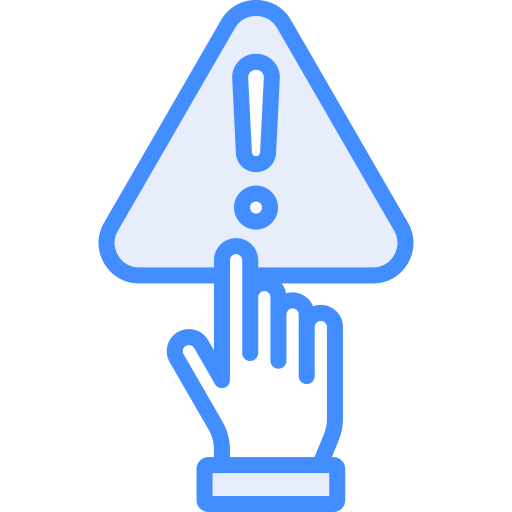Payday Lenders in West Virginia
Payday Loan Laws

Loan Terms and Conditions
prohibited
Whenever you need emergency financing, you can get loans online from a legit lending companies. Check your rates and terms before applying for cash advance online.
History of West Virginia Payday Loans
How to file a complaint
- ADDRESS
- Consumer Protection Division, PO Box 1789, Charleston, WV 25326
- 1-800-368-8808
- Website
West Virginia Loan Debt Relief
How to Get out of Loan Debt?
Types of Quick Loans in West Virginia
Alternatives to Payday Loans in West Virginia
Personal Loans
In West Virginia, personal loans offer a versatile financing solution for borrowers in need of funds without the requirement of collateral. These loans provide a lump sum upfront, coupled with a fixed repayment schedule, allowing individuals to meet various financial needs. The average interest rate for personal loans in West Virginia ranges from 9% to 12%, making them an attractive choice for borrowers seeking flexibility and convenience in managing their finances.
Construction Loans
When undertaking construction projects or significant renovations in West Virginia, construction loans provide a practical financing option. These short-term loans are tailored to support the costs associated with new construction or substantial home improvements. West Virginia construction loans typically necessitate a minimum down payment of 20% based on the appraised value of the property upon project completion. Timely repayment is crucial, as construction loans follow a lump sum repayment model once the project is finalized. By utilizing construction loans, West Virginia residents can confidently embark on their desired home transformation endeavors.
Home Equity Loans
Homeowners in West Virginia can leverage the equity accumulated in their properties through home equity loans. These loans allow borrowers to access funds by borrowing against the appraised value of their homes, making them an ideal choice for financing home improvements, debt consolidation, or significant expenses. With favorable interest rates compared to many other loan options, home equity loans in West Virginia provide an attractive financing solution due to their secured nature. Homeowners can borrow up to 80% of their home's value, minus any outstanding mortgage balance.
Bad Credit Loans in West Virginia
For individuals with imperfect credit scores, West Virginia offers bad credit loans to provide access to much-needed funds during challenging times. These loans are specifically designed to cater to borrowers with poor credit, offering an alternative when traditional loans may be inaccessible. While bad credit loans may come with slightly higher interest rates and fees, they serve as a valuable resource for individuals facing financial difficulties and requiring immediate cash. By thoroughly understanding the terms and conditions associated with bad credit loans, borrowers can make informed decisions and secure the necessary funds to address their financial obligations.
West Virginia Small Business Loans
Small business loan options in West Virginia:
- SBA loans: The SBA offers a variety of loan programs, including 7(a) loans, 504 loans, and microloans, to help small businesses access funding for things like, such as working capital, equipment purchases, and real estate investments.
- West Virginia Economic Development Authority (WVEDA) Loan Programs: The WVEDA offers financing options such as the Direct Loan Program, the Development Loan Program, and the Small Business Guaranty Program.
- West Virginia Small Business Credit Initiative (SBIC): The SBIC offers loan participation programs and credit enhancements to help small businesses access capital from participating lenders.
- Business Lines of Credit: Offer a revolving credit facility, allowing businesses to access funds as needed. They provide flexibility and can be used for short-term working capital, inventory management, or other operational expenses.
- Microloans: Microloans are small loans typically ranging from a few thousand dollars to $50,000. They are offered by nonprofit organizations and lenders who focus on supporting small businesses and startups.
VA loans in West Virginia
Eligible veterans, active-duty service members, and their spouses residing in West Virginia have the opportunity to obtain VA loans for home purchases. These unique mortgage loans are backed by the Department of Veterans Affairs (VA), providing lenders with protection against losses in case of borrower default. VA loans offer a range of benefits, including lower interest rates, zero down payment requirements, and the absence of private mortgage insurance (PMI). To qualify for a VA loan in West Virginia, borrowers must meet specific eligibility criteria, including minimum credit score and service requirements.
West Virginia Student Loans
Many options are available to West Virginia students to help finance their college education. These options include:
- Federal Student Loans: Low-interest loans backed by the federal government that can be used to pay for education expenses.
- West Virginia PROMISE Scholarship: This merit-based scholarship is available to high-achieving West Virginia students who meet certain academic requirements. It provides financial assistance to cover tuition and fees at eligible West Virginia colleges and universities.
- West Virginia Higher Education Student Loan Corporation (HESLC): HESLC offers a variety of loan programs, including the WV Medical Student Loan Program, WV Health Sciences Loan Program, and WV Nursing Scholarship Program.
- Private Student Loans: Loans offered by private lenders that can be used to pay for education expenses, with interest rates and terms that can vary widely.
West Virginia Income Information
United States Census Bureau. “Poverty in the United States: 2021.” Accessed on May 12, 2023.
United States Census Bureau. U.S. Census Bureau QuickFacts: West Virginia. Accessed on May 12, 2023.
West Virginia Payday Lender Complaints
| Total Complaints | 4 |
Consumer Financial Protection Bureau. Consumer Complaint Database. Accessed on May 12, 2023.
Most Common Issues
Payment not credited to account | 2 |
Charged Unexpected fees or interest | 1 |
Received a loan didn’t apply for | 2 |
What are the main reasons Americans apply for payday cash advance online or offline
| Reason | Share |
| Regular Expenses (Utilities, car payment) | 53% |
| Unexpected emergency/expense | 16% |
| Rent/Mortgage | 10% |
| Something Special | 8% |
| Other | 5% |
| Did not answer | 2% |
Payday Lenders by City
- Charleston
- Huntington
- Parkersburg
- Morgantown
- Wheeling
- Weirton
- Martinsburg
- Fairmont
- Beckley
- Clarksburg
- Teays Valley
- South Charleston
- St. Albans
- Vienna
- Cheat Lake
- Bluefield
- Cross Lanes
- Bridgeport
- Oak Hill
- Moundsville
- Dunbar
- Elkins
- Hurricane
- Pea Ridge
- Nitro
- Brookhaven
- Charles Town
- Princeton
- Ranson
- Buckhannon



